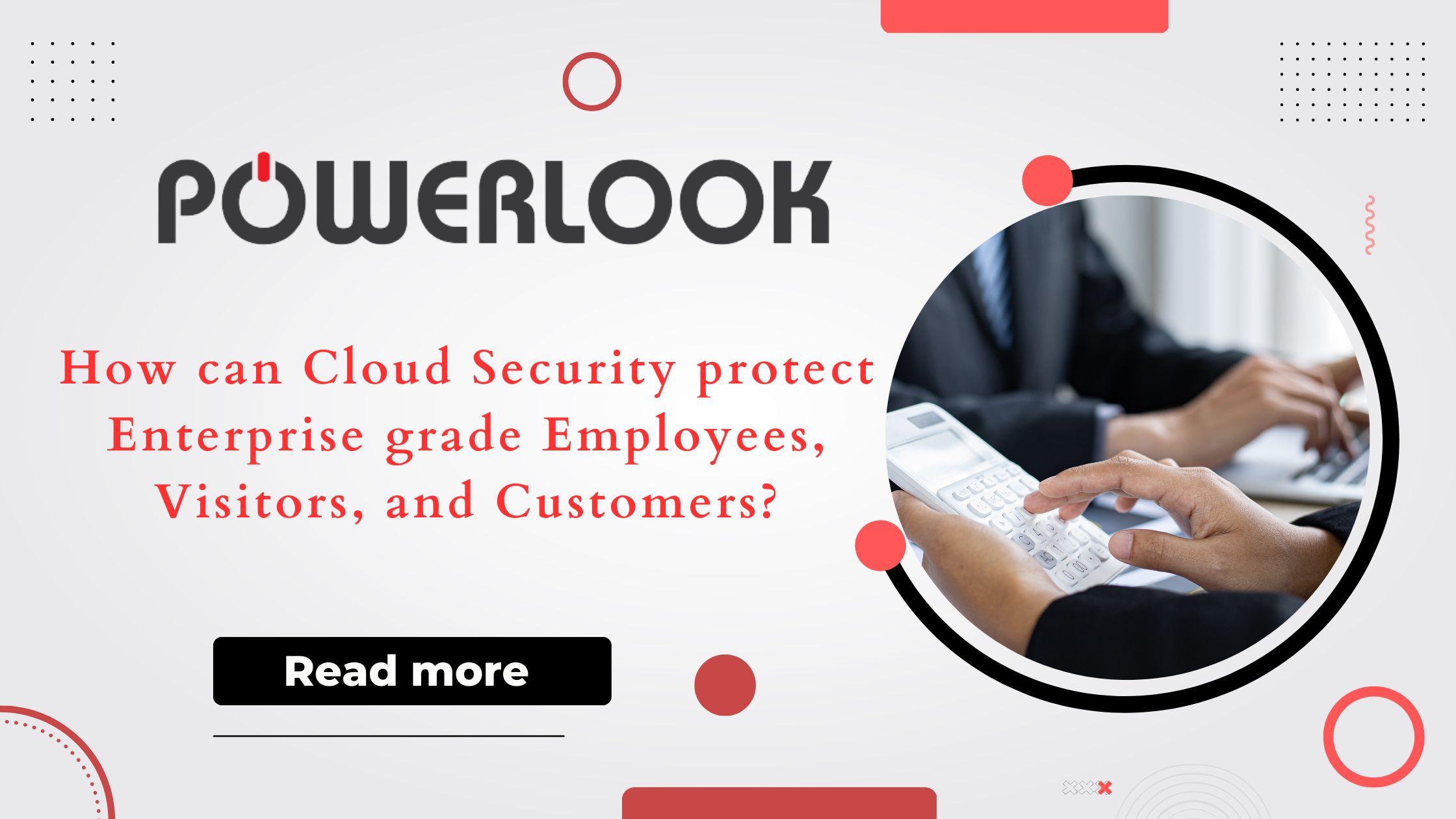
Cloud security has become an essential component of enterprise security in today’s digital age. With the increasing adoption of cloud-based applications and services, organizations must ensure that they have robust cloud security measures in place to protect their employees, visitors, and customers.

Cloud security ensures that unauthorized servers are unable to access the data stored in the cloud. Because a third-party service provider provides cloud services over the internet, cloud security and enterprise cloud security require effort from both the organization and the cloud service provider
Here are some ways cloud security can protect enterprise-grade employees, visitors, and customers:
- Identity and Access Management: Cloud security can provide identity and access management solutions that enable organizations to manage user identities, access permissions, and authentication. This can help ensure that only authorized individuals have access to sensitive data and applications, reducing the risk of data breaches and other security incidents.
- Threat Detection: Cloud security can detect and respond to security threats in real time. This can include monitoring suspicious activities, analyzing data for anomalies, and using artificial intelligence and machine learning to identify potential threats.
- Data Protection: Cloud security can provide data protection solutions that can help organizations protect sensitive data from unauthorized access, theft, or disclosure. This can include data encryption, access controls, and data loss prevention measures.
- Compliance: Cloud security can help organizations comply with industry regulations and standards, such as GDPR, HIPAA, and PCI DSS. This can include providing documentation and evidence of security controls, as well as automating compliance reporting and audit trails.
- Physical Security: Cloud security can also help organizations ensure physical security by monitoring access points, surveillance cameras, and other physical security measures. This can help protect employees, visitors, and customers from physical security threats such as theft, vandalism, or violence.
- Visitor Management: Cloud security can provide visitor management solutions that can help organizations manage visitors’ access to their premises. This can include identity verification, background checks, and access controls to ensure that only authorized visitors have access to restricted areas.
- Incident Response: Cloud security can provide incident response capabilities to minimize the impact of security incidents. This can include automated incident response workflows, incident management tools, and real-time alerts to notify security teams of potential threats.
In conclusion,
cloud security can provide a comprehensive approach to enterprise security, protecting employees, visitors, and customers from a wide range of security threats. By implementing identity and access management, threat detection and response, data protection, compliance, physical security, and visitor management, organizations can create a secure and safe environment for their employees, visitors, and customers. It is important for organizations to regularly review and update their cloud security measures to ensure that they remain effective against emerging threats and changing regulations.
